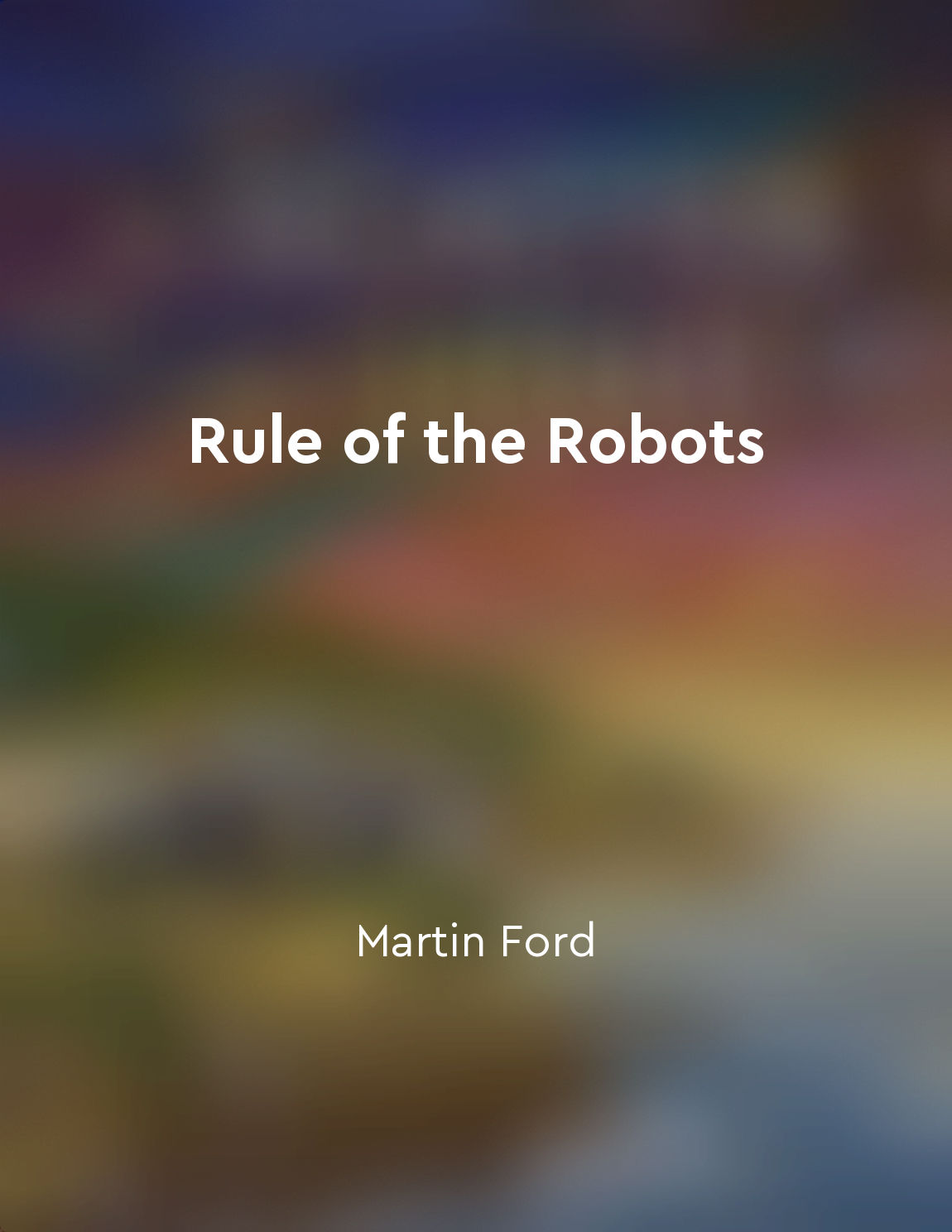Society must find ways to support workers affected by automation from "summary" of Rule of the Robots by Martin Ford
As technology continues to advance at an unprecedented pace, the impact on the workforce is becoming increasingly apparent. Automation, driven by artificial intelligence and robotics, is already transforming many industries, displacing workers and reshaping the job market. The widespread adoption of automation is expected to accelerate in the coming years, leading to even greater disruption in the labor market. The displacement of workers by automation presents a significant challenge for society. As jobs are automated, many workers will find themselves without employment or facing reduced hours and wages. This trend is likely to exacerbate existing inequalities and deepen social divisions. In order to address these challenges, society must find ways to support workers affected by automation and help them transition to new opportunities. One possible approach is to implement policies that provide financial support to workers who have lost their jobs due to automation. This could include expanded unemployment benefits, retraining programs, and other forms of assistance to help affected workers weather the transition. In addition, governments may need to consider more far-reaching measures, such as universal basic income, to ensure that all members of society are able to meet their basic needs in the face of automation-related job losses. Beyond financial support, it will also be important to invest in education and training programs that equip workers with the skills they need to succeed in a changing job market. This may involve rethinking traditional education systems and developing new models for lifelong learning that allow workers to adapt to evolving technologies and industries. By investing in human capital, society can ensure that workers are equipped to thrive in an increasingly automated world. In addition to supporting individual workers, society must also consider the broader implications of automation for the economy as a whole. As automation displaces workers and reshapes industries, it is likely to have far-reaching effects on GDP, consumer spending, and other economic indicators. Policymakers will need to carefully consider these effects and develop strategies to ensure that the benefits of automation are shared equitably across society.- The rise of automation presents both challenges and opportunities for society. By finding ways to support workers affected by automation, society can mitigate the negative consequences of technological disruption and create a more inclusive and equitable future for all. The time to act is now, before the full impact of automation is felt across the economy.


